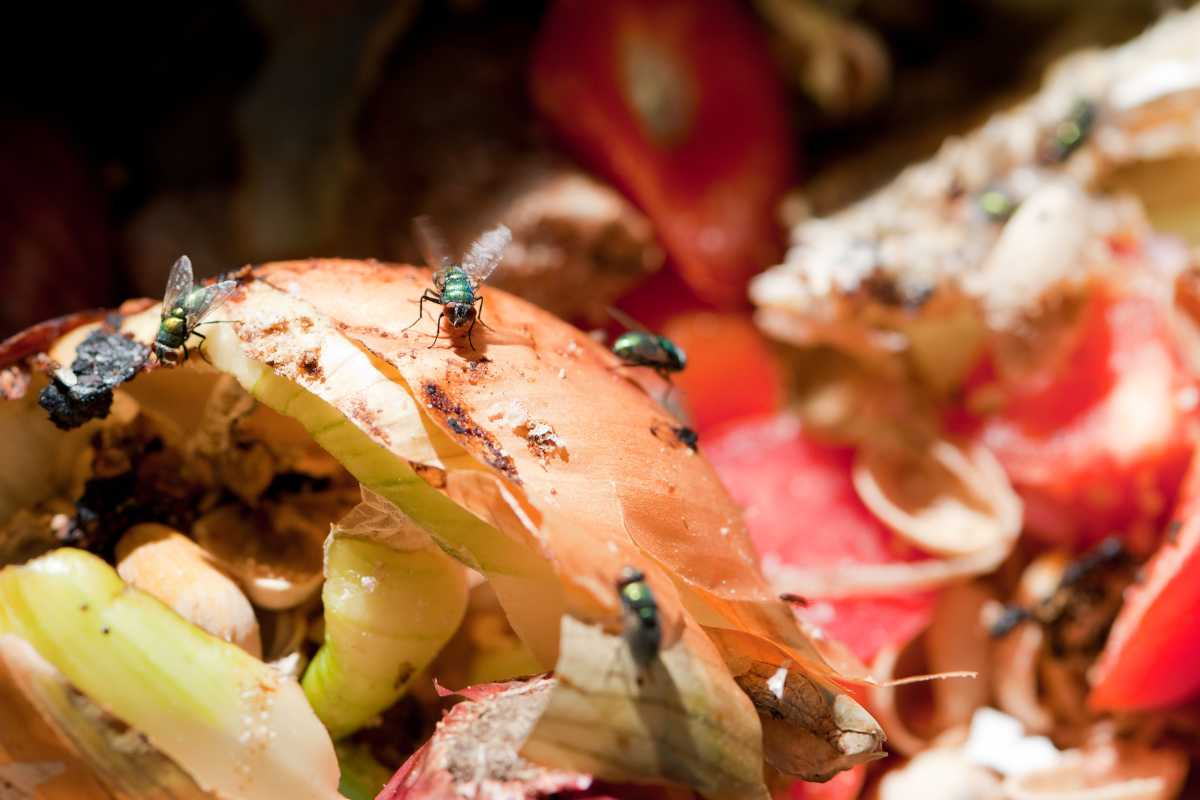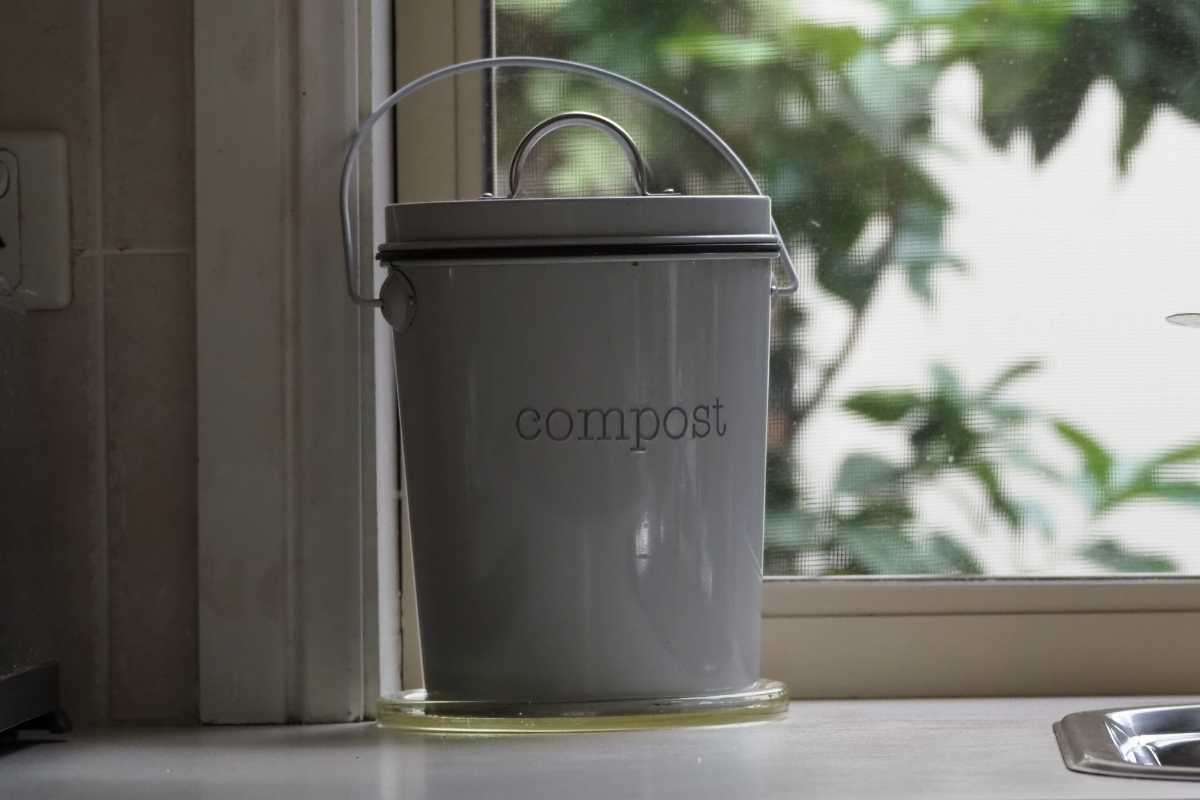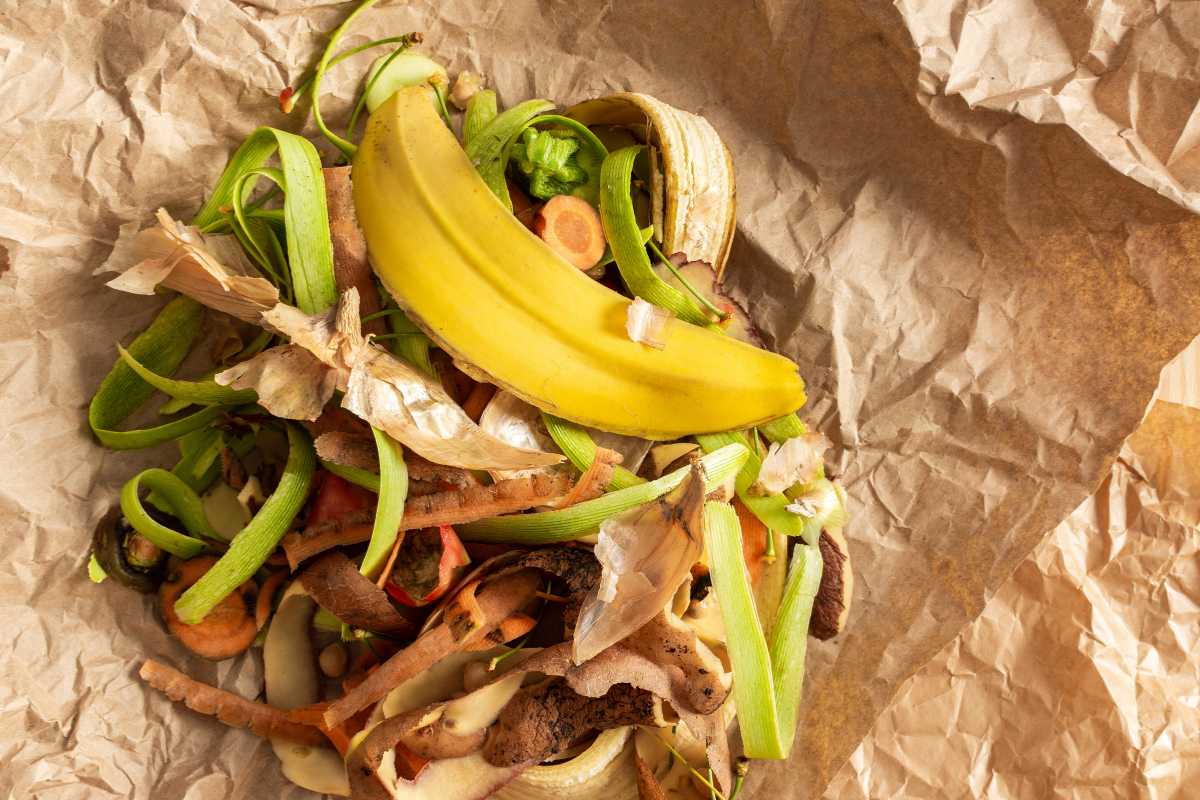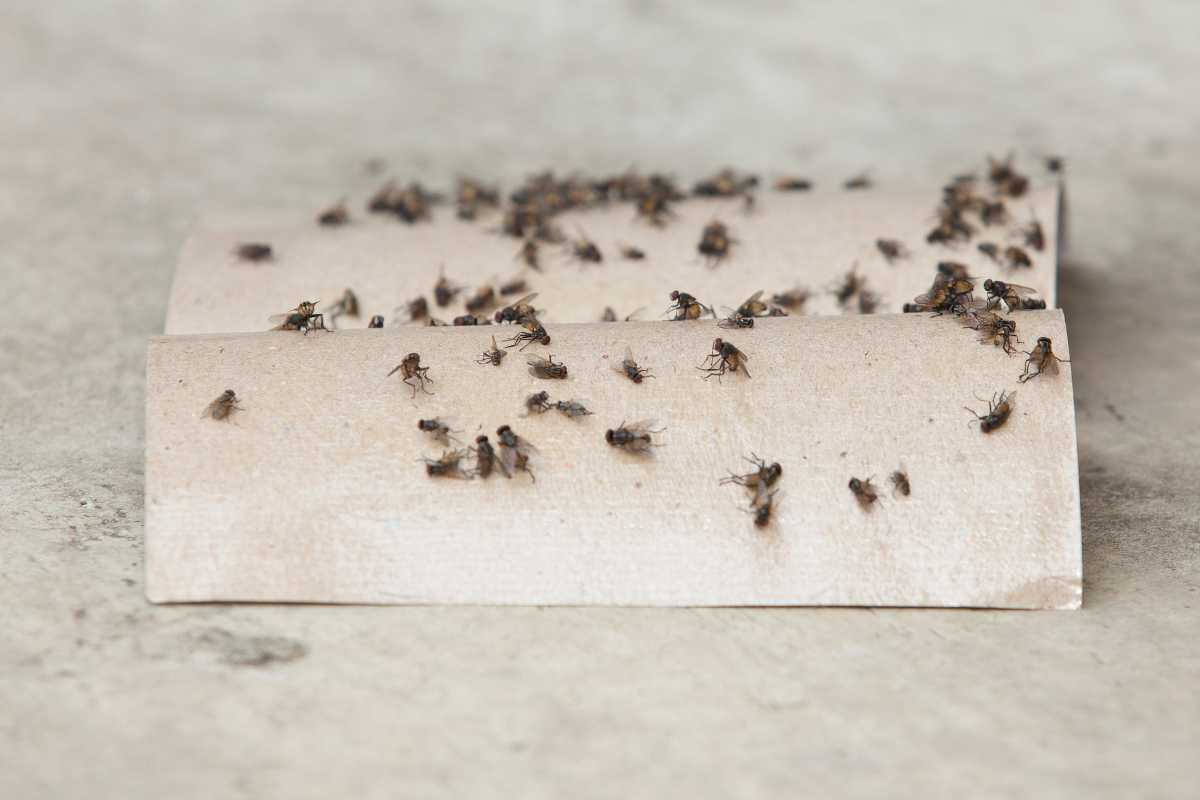Ah, the fruit fly…tiny, harmless, and yet endlessly annoying!
Fruit flies are attracted to the fermentation of fruit that is over-ripe, and so can be attracted to your decomposing compost, or your kitchen compost bin.
They lay their eggs in the top layer of the fruit, and can also go for your tomatoes and any other soft fruits you might be growing.
But are they that big a deal?
In this article, I detail the pros and cons of these tiny fruit flies, as well as take you through some methods of dealing with and preventing fruit fly invasions.
Are Fruit Flies Bad in Compost?

This purely depends on how many you have. Fruit flies can actually be very useful for breaking down organic matter.
Fruit flies are primary consumers, meaning they are herbivores (plant-eaters), and their adult lifespan is only around 2 weeks.
A female fruit fly can lay up to a thousand eggs a day, so it doesn’t take long for them to become a major issue. This might not be such a problem with your outdoor compost heap, but you won’t want them in your kitchen.
Unfortunately, if you eat fresh fruit and leave the food scraps lying around the kitchen for a long time, the chances are fruit flies will start showing up. They love the fermentation process that’s occurring from decomposition.
But there are a few things you can do to limit their numbers, both indoors and out.
How to Prevent an Invasion of Fruit Flies
1. Good Ratio of Greens and Browns in Compost
Always add a good mix of greens and browns to your composter.
Every time you add any fruit or vegetables to your compost, make sure you cover it with a layer of dry grass, twigs, or straw.
This is the best way to prevent pesky fruit flies in compost piles. If they can’t access their food source, they won’t become a problem.
Fruit flies like damp conditions, so putting on a layer of dry organic matter will help deter them from breeding in the compost. Dry matter helps keep your compost aerated, which will also discourage fruit flies.
2. Keep a Lid on the Kitchen Countertop Bin

Keep a lid on your kitchen bin. This may seem obvious as you don’t want the smell of rotting fruit wafting round your kitchen, but it should be mentioned when talking about preventing fruit flies.
Open and close the lid every time you add something, even if you’re going to add more in a few seconds.
You may find that fruit flies get trapped inside your kitchen bin, and you’ll see a couple of them fly out when you open the bin’s lid. This is a good time to empty into the compost pile outside and then cover the contents with dry grass.
3. Wrap Your Kitchen Scraps in Paper

Wrap your kitchen scraps in paper before adding them to your compost. Newspaper or butcher paper works well for wrapping.
Like in method one, it means the flies will not be able to access their food source and so will look elsewhere.
By the time the paper has broken down, the food scraps inside will have decomposed enough that they will no longer appeal to fruit flies.
4. Use Fruit Fly Traps
Use homemade fruit fly traps. This will trap any flies thinking about laying their eggs on your compost, and prevent a fruit fly infestation. These can be used inside, as well as outside.
There are two ways of making homemade traps to act as a magnet for fruit flies.
One is to place a banana peel skin inside a clear plastic container (like a bottle) and put three or four small holes in it. The small holes should be just about the width of a toothpick.
- Related Article: Banana Peel Decomposition Guide
Hang or place the bottles near the composter and the flies will find their way in, but be unable to get out.
You can make a similar trap using apple cider vinegar, and you can use a jar with a paper funnel taped into the top. The flies will crawl down the funnel but will be unable to escape.
Alternatively, you can put some plastic wrap over the mouth of the jar and prick some holes in it. If you’re using vinegar, you can add some liquid soap to break the surface tension, meaning the flies will drown.
How to Get Rid of Fruit Flies in the Compost Pile
If you’ve suddenly discovered you have a fruit fly infestation, here are some ways of dealing with them. Remember, prevention is better than curing, so it really is best to not let them get to the infestation phase in the first place!
1. Use a Vacuum Cleaner
Use a vacuum cleaner to suck them out of the air. The suction will kill them, so you’ll be able to empty the vacuum into the bin once you’re done.
This will obviously work best indoors, but there’s nothing saying you can’t take your cordless vacuum outside to deal with them.
This will only get rid of the adult flies and not the larvae, so be prepared to potentially do this multiple times if you have an infestation.
Fruit fly eggs take two weeks to become an adult, so don’t think that the job is over after the first day.
2. Use Fruit Fly Traps

Use traps, as detailed in Method Four of the preventative measures. You can use these along with vacuuming to catch any stragglers you may miss.
3. Add More Browns to Compost
Add more brown material to your compost. Start adding more browns to deter any future infestations.
Compost Fruit Flies Final Thoughts
Fruit flies are tiny, they don’t bite as they don’t even have teeth, and they will help break down the compost. Whether you see them as a pest or a partner in your composting is up to you.
Obviously, they are more of an issue indoors than outdoors. This is another reason you don’t want your compost heap near your kitchen.
The only real problem you’ll have is if your unfinished compost is near any soft fruit you are growing. This increases the chance that the fruit flies will move onto your edibles rather than sticking with your composted fruit.
In small numbers, fruit flies can be beneficial, and perhaps unavoidable, in your compost. But if you keep the mix of browns and greens right, and use some traps during late summer to early fall (when fruit flies are most common), then you should be fine.
Compost Fruit Flies FAQs
Are fruit flies bad in compost?
No, fruit flies are not bad in compost. They can actually be beneficial for breaking down food scraps. However, their presence does increase the risk of disease spreading through your garden.
Is it normal to have lots of fruit flies in compost?
It is not normal for lots of fruit flies in well-balanced compost. But if you have a bad mix of browns and greens in your compost, there will be a fruit fly infestation.
How to get rid of compost flies in the house
To get rid of compost fruit flies in the house, make sure all of your compost bins are closed tight when you aren’t using them. If you leave one open, you’ll attract fruit flies from your outdoor garden. You can make fruit fly traps, as well as use other methods like vacuums to remove them.
Why do fruit flies like compost?
Fruit flies like compost because it provides warmth and moisture. It also has high nitrogen content which helps them grow quickly. They are attracted to the fermentation process of the kitchen scraps.
How do I get rid of fruit flies in my compost bin?
You can get rid of fruit flies in your compost bin by making sure that your compost is balanced properly. Make sure that you add enough brown materials such as leaves, grass clippings, straw, etc. Also, try to avoid putting too much green matter into your compost. These include things like fresh vegetables, fruits, flowers, weeds, etc. Fruit fly traps and vacuuming will also help get rid of the fruit flies.


